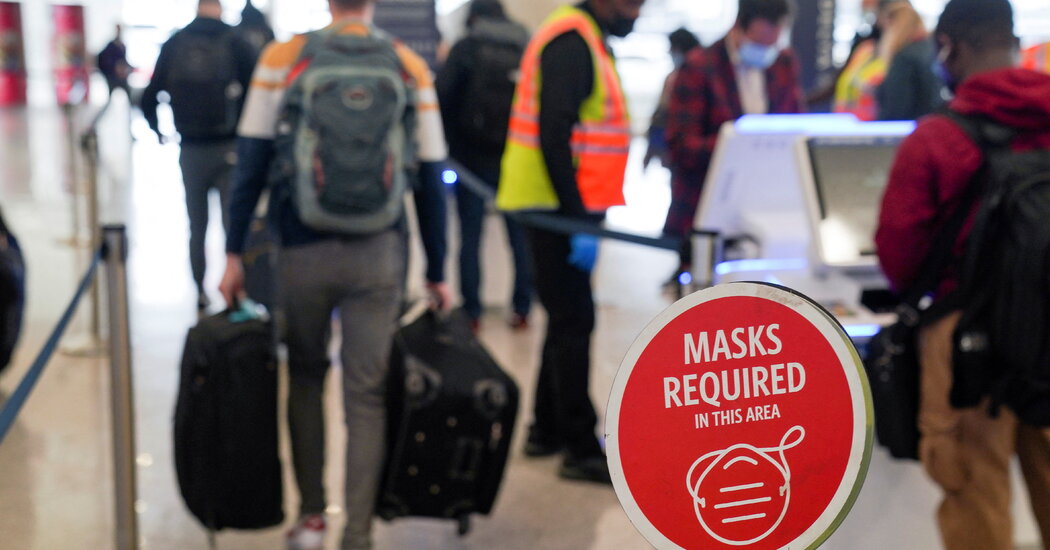
The chief executive of Delta Air Lines wants the federal government to put unruly passengers on a federal no-fly list that would bar them from commercial flights.
In a letter to the attorney general, Merrick B. Garland, the executive, Ed Bastian, said the government should put passengers who were convicted of disrupting flights on a no-fly list. Mr. Bastian argued that would be a “much-needed step” toward addressing a spike in violence aboard planes that has threatened flight safety during the coronavirus pandemic.
“This action will help prevent future incidents and serve as a strong symbol of the consequences of not complying with crew member instructions on commercial aircraft,” Mr. Bastian said in the letter, which was sent on Thursday.
The rate of disruptions by unruly passengers on Delta flights last year was twice as high as in 2019, Mr. Bastian noted. The airline has put nearly 1,900 people on its own no-fly list for refusing to comply with mask requirements and has referred more than 900 passenger names to the Transportation Security Administration for civil penalties.
The Federal Aviation Administration said it had initiated nearly 1,100 investigations into unruly passengers last year, more than in the previous seven years combined. That figure does not include security violations reported to the Transportation Security Administration.
Disruptive passengers often threaten and hurt flight attendants, some of whom have been hospitalized. Several unions representing flight attendants and other airline workers previously called for the creation of a federal no-fly list, and Transportation Secretary Pete Buttigieg said last fall that the idea had merit.
A federal No-Fly List, which was created to prevent terrorist attacks, is maintained by the F.B.I. The Justice Department did not immediately respond to a request for comment on Mr. Bastian’s letter.
In November, Mr. Garland directed U.S. attorneys to put a priority on the prosecution of federal crimes on commercial planes that threatened flight safety. “Passengers who assault, intimidate or threaten violence against flight crews and flight attendants do more than harm those employees; they prevent the performance of critical duties that help ensure safe air travel,” he said at the time.
Some airlines restricted serving and selling alcohol during the pandemic in part as a safety measure. In some cases, violent passengers have been visibly intoxicated or under the influence of alcohol or drugs, according to flight attendants and videos on social media.
Southwest Airlines said this week that it planned to restart selling alcohol this month, a move that Lyn Montgomery, the president of its flight attendants union, called “unsafe and irresponsible.”
“We have adamantly and unequivocally informed management that resuming sales of alcohol while the mask mandate is in place has the great potential to increase customer noncompliance and misconduct issues,” she said in a statement.




